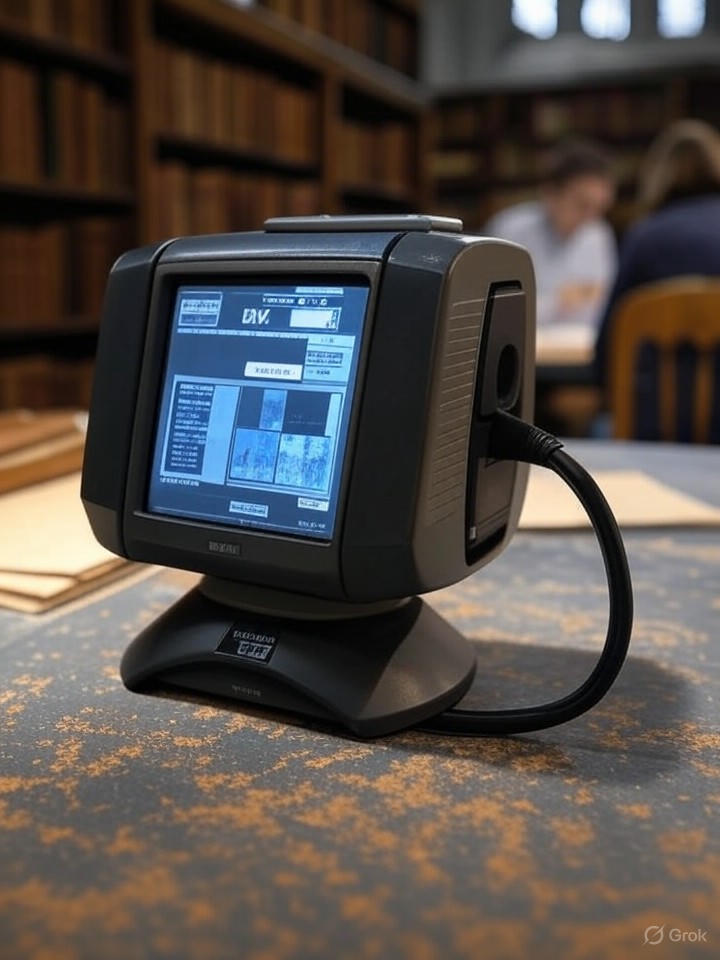In an innovative effort to combat digital obsolescence, Cambridge University Library hosted the Festival of Floppies on October 9, 2023. This event brought together archivists, retro-computing enthusiasts, and conservation experts to explore the preservation of floppy disks, which were prominent in personal computing from the 1980s to the 1990s. The festival was part of the Future Nostalgia project, aiming to address the urgent need for preserving cultural artifacts stored on these increasingly fragile media.
The day featured hands-on workshops where participants learned to image floppy disks using advanced tools like the KryoFlux, a device that captures raw magnetic flux data. This process not only preserves files but also maintains the disks’ structural integrity. The significance of such preservation efforts is underscored by the fact that these disks are susceptible to degradation caused by factors such as mold, dust, and magnetic decay. They often contain irreplaceable materials, including personal letters and early digital art.
Collaboration and Knowledge Exchange
Collaboration was central to the festival’s mission, with participants from libraries, archives, and gaming communities coming together to share their expertise. Presentations covered a range of topics, including ethical considerations in data recovery and innovative cleaning techniques for contaminated disks. One notable session focused on the challenges presented by non-standard formats, highlighting how retro-computing enthusiasts have developed trial-and-error methods that are now invaluable to professional archivists.
The event’s agenda included practical sessions on disk imaging workflows, emphasizing the necessity for standardized practices in digital preservation. According to a post on the Digital Preservation at Cambridge University Libraries blog, attendees engaged in discussions about their own experiences with “disk disasters” and successes, such as recovering data from seemingly irretrievable media. This exchange of knowledge is vital, especially as floppy disks are frequently donated by individuals or estates containing significant historical documents, including materials from figures like Stephen Hawking.
Innovative Technologies on Display
Technical demonstrations at the festival showcased tools that go beyond conventional USB drives, illustrating why consumer-grade readers are inadequate for preservation purposes. The KryoFlux allows for bit-level imaging, resulting in accurate digital replicas that can be analyzed and migrated to contemporary formats. Participants explored software such as the HxC Floppy Emulator, which facilitates the emulation of old hardware environments to unlock locked files.
Discussions also addressed the broader implications of digital heritage preservation, including the environmental considerations of maintaining physical media versus transitioning to cloud storage. The festival celebrated floppy disks not merely as outdated technology but as vital links to personal and cultural histories, with artistic installations that evoked the pixelated aesthetics of their era.
Looking forward, the Festival of Floppies serves as a model for similar initiatives globally, addressing concerns about a potential “digital dark age.” By documenting workflows and sharing resources, Cambridge aims to empower smaller institutions that may lack specialized equipment. Leontien Talboom, a key figure in Cambridge’s digital preservation team, shared success stories from the library’s collections, which included unpublished manuscripts and early software prototypes.
The festival also advocates for increased funding and training in digital preservation, ensuring that today’s critical data does not succumb to tomorrow’s obsolescence. As floppy disks gradually fade into history, the knowledge gained from this event offers a roadmap for safeguarding our evolving digital heritage, reminding stakeholders that preservation is as much about innovation as it is about memory.







